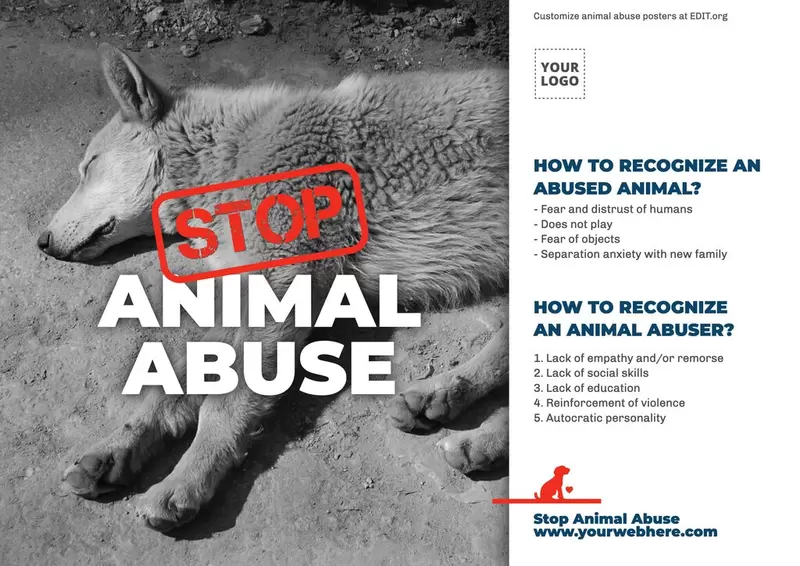Zoos are often viewed as wondrous places where the magic of wildlife unfolds before our eyes. People flock to these establishments, enchanted by the allure of observing exotic species from around the globe. However, beneath the facade of education and conservation, the uncomfortable reality of animal welfare often lurks in the shadows. Despite the enchanting veneer, numerous zoos fall prey to egregious practices that compromise the well-being of their inhabitants. As a concerned citizen, knowing how to recognize and report potential instances of animal cruelty is imperative. This article will delineate the legal avenues available for lodging complaints against zoos suspected of maltreating animals.
Understanding Animal Cruelty in Zoos
Before embarking on the process of reporting a zoo, it is crucial to establish a clear definition of animal cruelty. In the context of zoos, this may encompass a range of concerns, including inadequate veterinary care, insufficient food and water, confinement in small or unsuitable enclosures, or failure to provide an environment that meets the animals’ psychological and physical needs. Each of these factors can detrimentally affect an animal’s health and well-being. Observing signs of distress, such as repetitive behavior, neglect of personal hygiene, or unsolicited aggression, can serve as red flags indicating a deeper problem within the institution.
Documenting Your Observations
Have you witnessed something troubling at your local zoo? Before you proceed with the reporting process, it is essential to gather as much detailed information as possible. Take notes of your observations, including the specific behaviors exhibited by the animals, dates, times, and any staff interactions that might provide context. Photographic or video evidence can be particularly compelling, as it offers tangible proof of the conditions encountered. Humorously inadequate enclosures, sick animals, or neglectful caretaking are all instances that can be captured visually, enhancing the credibility of your claims.
Identifying the Appropriate Authorities
Delivering your concerns to the right authorities is crucial for ensuring that your report is taken seriously. In the United States, several entities are responsible for overseeing animal welfare in zoos. Chief among these is the United States Department of Agriculture (USDA), which administers the Animal Welfare Act (AWA). This legislation sets forth basic standards of care that should be adhered to by facilities housing animals. You can alert the USDA by filing a complaint through their Animal Care offices.
Additionally, many states have their own animal control agencies that handle reports of cruelty specific to their region. Research the appropriate offices in your state, as they may provide resources for addressing zoo-related concerns more effectively. Collaboration with local animal rights organizations or advocacy groups can also bolster your campaign against cruelty, as these associations can lend their expertise and additional resources to your cause.
Filing Your Complaint
Once you have identified the relevant authorities, it is time to file your complaint. When writing, be succinct yet thorough. Clearly articulate the details of your observations and the grounds for your concerns. Include any evidence you’ve gathered, and ensure that you maintain an objective tone. Emotions can run high when discussing animal welfare; however, presenting a factual, rational argument is more likely to elicit a productive response from the authorities.
Understand that many agencies are inundated with reports and that immediate action might not be forthcoming. Stay persistent; follow up on your complaint to ensure that it is being addressed adequately. If you receive no response, don’t hesitate to escalate your concerns, seeking the aid of elected officials or local media outlets to help shine a spotlight on the issue.
The Role of Advocacy Groups
Engaging with animal advocacy organizations can amplify your impact significantly. Groups such as the Humane Society, PETA, or your local animal rights organisation may have established protocols for addressing animal cruelty in zoos. They often possess greater influence and resources to investigate claims thoroughly and enact change at a higher level. They can work towards public awareness campaigns, direct negotiations with the zoo management, or even legal action if necessary. Connecting with like-minded individuals through these organizations fosters a community committed to the cause, providing a support network during what can be a challenging journey.
Utilizing Social Media
In the digital age, social media can be a potent tool for raising awareness about animal welfare issues in zoos. Consider utilizing platforms such as Facebook, Twitter, or Instagram to share your observations and concerns. Often, a compelling story coupled with visual evidence can capture the public’s attention, generate outrage, and galvanize a wider audience into action. Hashtags, such as #EndZooCruelty or #AnimalRights, can help rally support and connect with others invested in animal welfare. It amplifies the conversation and can potentially lead to significant change.
Legal Considerations
Filing a complaint can be a daunting task; thus, it is essential to be aware of potential legal ramifications. Ensuring that your report remains fact-based and devoid of defamatory language is crucial in protecting yourself from potential legal disputes. If possible, consult with legal counsel familiar with animal law to guide you through this complex landscape. Understanding your rights and the legal protections available to whistleblowers can bolster your confidence in taking a stand against animal cruelty.
Conclusion
Reporting a zoo for animal cruelty is not solely an act of civic duty; it is a testament to our collective obligation to safeguard the voiceless. By equipping ourselves with knowledge and mobilizing resources, we can advocate for the humane treatment of all living beings. Though it may seem like an uphill battle against a powerful institution, every action, every complaint, and every voice matters. By working together and using the legal avenues at our disposal, we can strive for a future where zoos serve as bastions of conservation and education, rather than sites of suffering.








